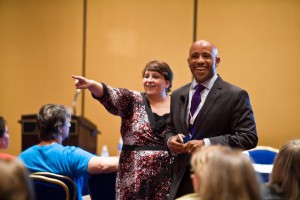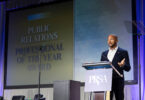Editor’s note: This is the 2nd in a series of guest posts from industry thought leaders predicting key trends that will impact the public relations profession in 2015. Follow the series and join the discussion by using the hashtag #PRin2015.
Training and other non-billable activities were eliminated or drastically scaled back by most firms during the seemingly endless Great Recession that allegedly has ended. As a result, a significant portion of an entire generation of public relations talent received minimal training during the critically important early stages of their careers.
Young professionals I’ve talked with over the past several months admit to being overwhelmed by added management responsibilities as they move up the career ladder. They also cite that colleges didn’t provide enough experience in other areas where they are struggling today—writing, business basics, workplace relationships and management.
“I was an intern last year and I now oversee two interns,” a candid young pro told me recently. “There is tension between the interns and me, and I don’t know what to do. I have no experience with managing people and I received no training prior to my promotion.”
The new supervisor clearly was struggling with his new responsibilities. When this happens, other issues invariably arise. In addition to the new supervisor, those reporting to him generally become frustrated and, therefore, susceptible to sabotage or looking for jobs elsewhere.
It’s not uncommon to be promoted into management roles based on outstanding project work, with an expectation that other essential skills will develop over time. Enlightened firms are realizing they must do a better job of training employees at every level of the organization. In 2015, I predict training and development will gain significant momentum at most agencies. Failing to do so will risk frustration and eventual departure of employees.
Many corporations provide a variety of training and development programs for all employees, with specific management training for executives. During my first corporate job at Eli Lilly, I sometimes felt that new managers were in training more than they were doing their jobs. In hindsight, I look back at the Lilly training regimen with appreciation since ensuing employers were less focused on management development.
Multiple studies underscore the value of training and development programs and note that such programs increase morale. Nevertheless, these programs are often eliminated when revenue decreases since business leaders must protect the profitability of the company.
According to the American Society for Training and Development (ASTD), U.S. firms spend $1,067 per employee. That’s about 2.7% of the entire staffing budget, and provides an average of 32 hours of training annually. An increasing number of organizations are shifting to cost-effective online training. While online programs are efficient for certain training efforts, in-person sessions can strengthen team relationships and increase morale.
In 2015, firms big and small will put renewed energy behind training and development efforts for their teams. Many of these programs will be focused on enhancing writing and business skills. That prediction is supported by survey results from the PR Council, which represents more than 100 U.S. agencies, and a recent survey of chief communications officers and agency heads who are members of the Arthur W. Page Society.
The PR Council survey last year asked firms to list one thing that PR firms wished public relations and communication programs were teaching, or teaching better, out of a list of 10 items. Writing topped the list, followed closely by Business 101/business strategy.
Prior to writing our book, Business Essentials for Strategic Communicators, co-author Matt Ragas and I surveyed members of the Arthur W. Page Society. Nearly 85% of respondents indicated that it is “extremely important” for public relations and advertising professionals to have a solid grounding in “Business 101”. Therefore, it’s clear these likely will be the top two training and development programs for agencies in the New Year. Supporting this premise is the innovative “mini-MBA” pilot program being launched early this year by Edelman to train executives in strategy, decision making, business acumen and strategic leadership.
In the coming months, other agencies and corporations will dramatically increase their investment in essential professional development programs. This will be important for the future growth and success of our profession.
Ron Culp is a veteran corporate and agency executive who now serves as professional director of the graduate program in public relations and advertising at DePaul University and co-author of “Business Essentials for Strategic Communicators: Creating Shared Value for the Organizations and its Stakeholders.” He blogs on careers at www.culpwrit.com and you can follow him on Tiwtter @Culpwrit.








[…] is my guest post from today’s PRSAY blog. It is the second of series of predictions on what 2015 holds for the profession of public […]